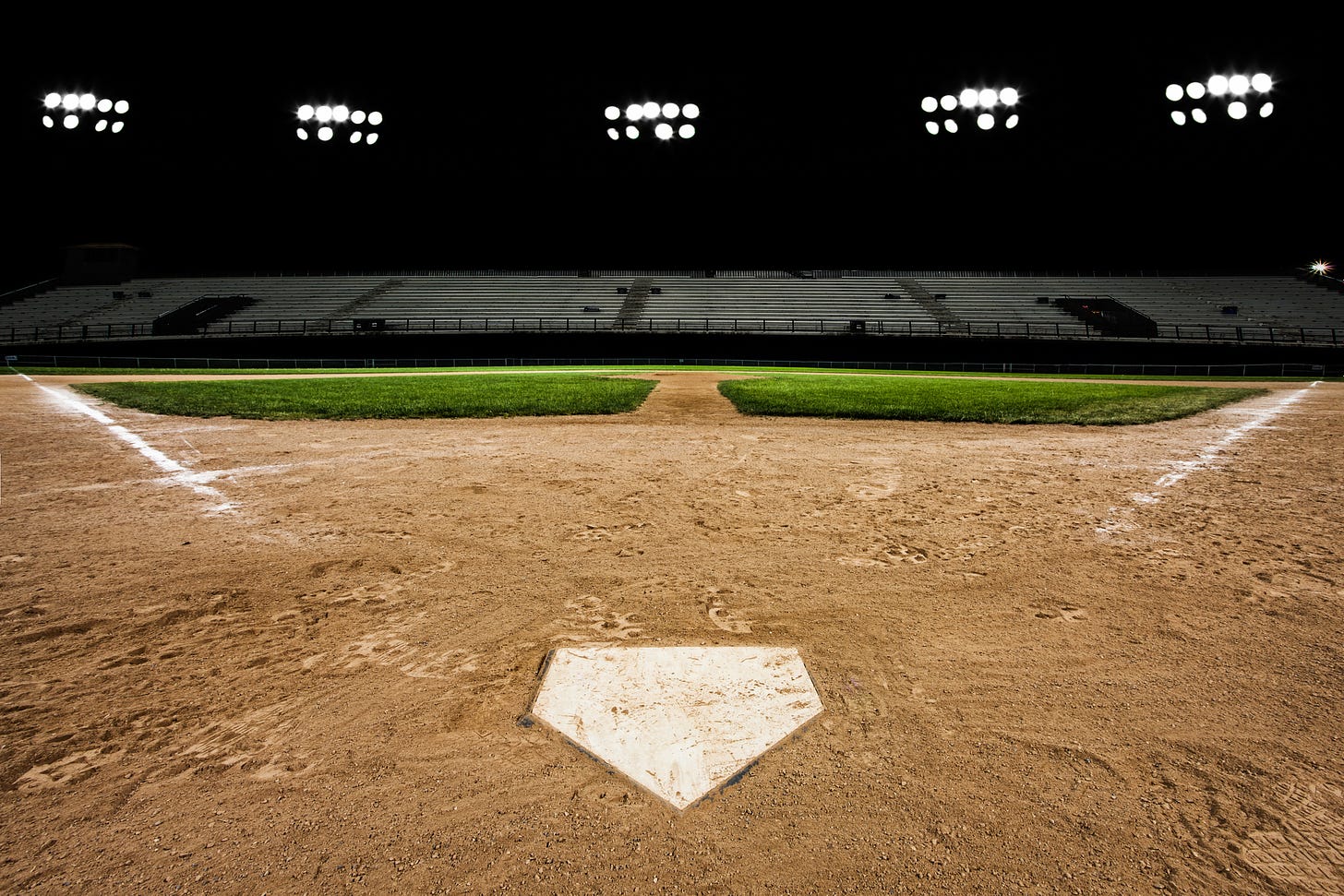My relationship with baseball has always had a lot to do with time.
When I was a kid, I followed the sport obsessively. Thoroughly. In and out, and every day. It was a perfect match of supply and demand: I had a lot of free time on my hands, and baseball had a lot of games with which to fill it. The sheer volume of product put out by Major League Baseball alone is staggering: over 2,400 regular-season games each season, enough to last around ten months if you played them all end-to-end. When was twelve years old, the baseball club in Cleveland—the city I was born in and grew up very near to—suddenly became very, very good, and they stayed that way for the entirety of my teenage years. It was a magnificent concurrence, and I watched every game that I could—which was a lot, because I was a teenager who had nowhere else to be.
As I became an adult, my interest remained, but my viewership dropped precipitously. I still tie a small-but-indelible portion of my emotional well-being to the success of the Cleveland Guardians, but I don’t spend nearly as much of my time watching. Sometimes, I reflect on this change, and it causes me to indulge a kind of squishy, rose-colored nostalgia for the days when I had time to do things like just watch baseball all the time.1
When I do watch now, it can be a bit bewildering; I look up and a half a season has already passed by and the All-Stars of today are the sons of my childhood All-Stars.
Time and tide wait for no one, and so on.
This season, for the first time ever, Major League Baseball will utilize a clock.
In an effort to rein in the ever-creeping length of games, a new series of rules have been put in place. Pitchers will have 15 seconds to deliver each pitch, or 20 seconds if there is a runner on base. Batters will have eight seconds to be in the batter’s box and alert for said pitch. Both with have 30 seconds between batters to get ready. If the pitcher takes too long, an automatic ball will be called; if it’s the batter delaying things, an automatic strike.
In spring training play under the new rules, the length of games has dropped precipitously, shaving nearly twenty minutes off an average time that had crept past three hours. Having attended a handful of minor league baseball games played under these rules in the past few years, I can vouch for the difference in pace. It’s subtle, but I’ve found myself looking up and thinking “oh, wow, it’s the sixth inning already?” more than once. It’s like playing a podcast at 1.1x speed; it’s not really noticeable until you’re done faster.
Of course, there are traditionalists who see the change as heresy, one more sign of crass modernity impinging on the timeless perfection of the sport. Baseball shouldn’t have a clock, they argue. It’s the one sport without a clock.
Why do you want less baseball?
As much as I’ve enjoyed the faster pace of pitch-clock games, it’s an argument I’m sympathetic to; part of the appeal of baseball is its stubborn refusal to change.
This past weekend, my wife and I watched the 1992 movie A League of Their Own with our kids. We were excited to share the movie with them. Sure, some of the language Tom Hanks’s Jimmy Dugan uses isn’t totally kid-appropriate, but it’s nothing they haven’t heard from me when I’m doing household repairs, and it’s a both a great story and a lot of fun.
There’s a lot that feels dated about the movie now, both intentionally—it’s a period piece, of course—and unintentionally, as there’s some humor that was par for the course in the ‘90s that doesn’t hold up now.2 The fundamentals of the story are still great, though, and I'd argue that it's still a top-three baseball movie of all time.
(In no order: Bull Durham, Major League, A League of Their Own. I invite you to argue with me in the comments.)
Anyways—I don’t think this qualifies as a spoiler, given that the movie came out 31 years ago, but nevertheless, spoiler alert—the story climaxes as so many other baseball stories do, with an underdog hero saving the day with a come-from-behind victory in their team’s last at-bat.
Two outs, two strikes, bottom of the ninth, down by one, and look who’s coming to the plate…
It’s a familiar construction, but it works, because, well—that’s how baseball works. One pitcher, one hitter, and twenty-seven chances to do something with that situation. A digital clock behind home plate doesn’t change this, doesn’t take away a single one of those chances. Instead, it simply compresses the dead space in between, taking away the time for announcers to do Zapruder Film-like deconstructions of a thrown slice of pizza or apologies for their hot-mic bigotry, and offering fewer chances for ads from the official gambling partners of Major League Baseball.
I’m excited for the baseball season that’s about to begin—more excited than I’ve been in a while. That’s not just because the Guardians had a great season last year behind the surprising emergence of a handful of young stars, though that certainly doesn’t hurt. I think it’s because my relationship with baseball again comes down to time.
I turned forty last May, and while I recognize that that’s still young to many people reading this, I’ve started to feel the passage of time quite viscerally. I’m deep into my career, established in my personal life, not even a “young parent” anymore. I’m in my veteran era, and while I don’t hate it—far from it, I’m quite happy—I do sense the immediacy of opportunity more than ever.
Life went and got itself in a big damn hurry, and if I want to do the things I’ve talked about doing one day, well… I’d better get on with it.
Baseball, that same sport that filled so many idle afternoons in my childhood bedroom, once again serves as a perfect proxy—and maybe even more so now, with the introduction of the pitch clock. There is still time to do something great, still the same chance to come up to the plate down one run with two outs in the bottom of the ninth, still time to become the hero.
There’s still time. You just can’t waste it anymore.
—Scott Hines (@actioncookbook)
This nostalgia is wholly misguided. I have less than zero desire to relive either my teenage years or the 1990s, even if my Spotify listening history suggests otherwise.
My kids, bless them, could not understand any of the jokes about Marla Hooch supposedly being ugly, a characterization they did not accept.







The Sandlot liker has logged on.
Put me down as a big fan of the pitch clock. I'm older than you, and the net effect of the clock and the timer between innings is to get the total game length back pretty close to what it was in the Seventies. I'll probably watch or listen to at least a hundred BEISBOLCATS games this season, God help me. It's still the perfect radio sport and a great soundtrack to all sorts of other summer activities.